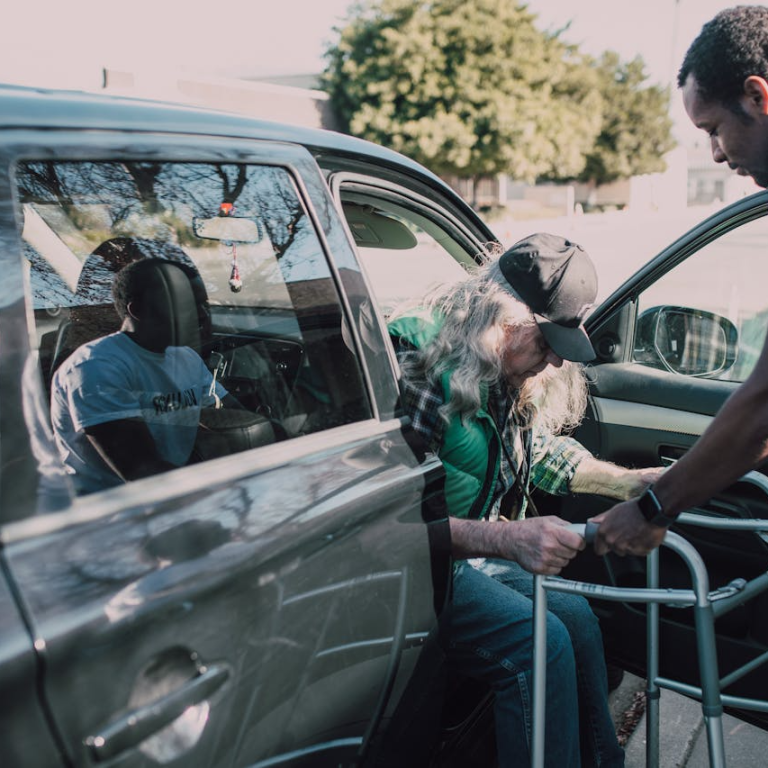Key Takeaways:
-
Medicare hospital coverage helps cover essential hospital services, but not everything is included—be prepared for out-of-pocket costs for certain items.
-
Understand what’s not covered, so you’re not caught off guard by unexpected expenses or gaps in coverage when you’re admitted to the hospital.
Unpacking Medicare’s Hospital Coverage: What’s Actually Included?
If you’re enrolled in Medicare or planning to be, you might assume that once you’re covered, all your hospital-related needs are taken care of. But that’s not entirely true. Medicare’s hospital coverage, known as Part A, can be a bit more complicated than it seems at first glance. Yes, it does cover a lot of important medical services, but there are limits, and knowing them upfront can save you from surprises when you or a loved one is admitted to the hospital.
Let’s break it down and clear up some of the confusion.
What Medicare Part A Covers in a Nutshell
Medicare Part A, often referred to as hospital insurance, primarily covers inpatient hospital stays, skilled nursing facility care, hospice care, and some home health care services. If you’re admitted to a hospital, Part A kicks in to cover your room, meals, nursing care, and a range of necessary treatments and services related to your care.
Sounds comprehensive, right? But there are still quite a few things that aren’t included, and understanding the specifics can help you better plan for your healthcare needs.
Hospital Stays and the 90-Day Rule
Medicare Part A will generally cover up to 90 days of hospital care per benefit period, which starts the day you’re admitted and ends when you haven’t received inpatient care for 60 consecutive days. For most people, those 90 days seem like plenty, but what if you need more time in the hospital? That’s where things get trickier.
You do have an extra 60 “lifetime reserve” days, but you can only use these once, and you’ll likely be charged a daily coinsurance amount for each of those extra days.
What’s NOT Covered by Medicare Part A?
Here’s where many people are caught off guard. While Part A covers the hospital stay and many related services, there are several things it does not cover, and these can add up quickly if you’re not prepared.
Private Rooms
If you’re hoping for a private room, Medicare won’t cover the cost unless it’s medically necessary. For example, if you require isolation for a contagious disease, that’s one thing. But if it’s just a preference for privacy or comfort, you’ll be paying for that out of pocket.
TV, Telephone, and Personal Comfort Items
You might not think about it until you’re in the hospital, but little comforts like television, a private telephone, or even personal care items like toiletries aren’t covered under Medicare Part A. These extra services and items will come with their own costs.
Long-Term Care Beyond Skilled Nursing Facilities
Medicare doesn’t cover long-term custodial care if that’s the only care you need. Custodial care refers to help with daily living activities like eating, bathing, or dressing. So, if you end up in a nursing home or require care at home beyond what’s classified as “medically necessary skilled care,” you’re on your own for covering those expenses.
Understanding Skilled Nursing Facility Care
If you’ve been hospitalized for at least three consecutive days, Medicare Part A will cover your care in a skilled nursing facility (SNF) for up to 100 days. But, there’s a catch: after the first 20 days, you’ll have to pay a daily coinsurance amount. Plus, once you’ve used up those 100 days, Medicare doesn’t cover your stay anymore unless you’re eligible for another benefit period.
It’s also important to note that this coverage applies only to skilled care services like physical therapy or wound care—not long-term stays for custodial care.
Is Hospice Care Covered?
Hospice care is an important part of Medicare Part A, and it’s one of the more generous areas of coverage. If you’re terminally ill and elect to receive hospice care, Medicare covers a wide range of services including pain management, nursing care, social services, and counseling for both you and your family.
However, like other areas of Part A, there are still some things Medicare won’t pay for under hospice care. For example, Medicare won’t cover treatments intended to cure your illness, room and board in a facility like a hospice residence (unless you need short-term inpatient care for symptom management), or services unrelated to your terminal condition.
Home Health Care: What’s Included?
Medicare’s coverage of home health care is somewhat limited. If you qualify (and you must meet specific criteria), Part A will help cover some of the cost for intermittent skilled nursing care, physical therapy, speech-language pathology, and continued occupational therapy. But again, there’s a big gap here: Medicare doesn’t cover 24-hour care at home, meals delivered to your home, or personal care services if that’s the only type of care you need.
The Financial Side: Deductibles and Coinsurance
We can’t talk about Medicare hospital coverage without discussing the financial aspect. It’s important to know that Medicare Part A isn’t free. While most people don’t pay a premium for Part A, there are other costs you should prepare for.
The Hospital Deductible
Before Medicare Part A covers your hospital stay, you’ll need to pay a deductible. As of 2024, this deductible is applied per benefit period, which means if you’re hospitalized multiple times in one year with separate benefit periods, you’ll need to pay the deductible each time.
Coinsurance Costs
After you’ve met your deductible, Medicare covers most of your hospital expenses, but you’ll still be responsible for some coinsurance if your stay extends beyond 60 days in a benefit period. For days 61 through 90, you’ll pay a daily coinsurance. After 90 days, your lifetime reserve days kick in, but those also come with higher coinsurance costs.
Hospital Services Covered by Medicare Part B
Many people forget that not all hospital-related care falls under Part A. For example, services like doctor visits, diagnostic tests, and outpatient treatments that you receive while in the hospital are often billed under Medicare Part B.
Medicare Part B covers these services, but you’ll also need to pay a deductible and coinsurance for these, so it’s important to factor that in when calculating your overall costs.
Avoiding Surprise Costs: What You Can Do
The best way to avoid unexpected hospital costs with Medicare is to be informed. Understand what’s covered, and make sure you know what your out-of-pocket expenses will be for things like deductibles, coinsurance, and services that aren’t included under Medicare Part A.
Get the Right Coverage
Many people opt for additional coverage to help with gaps in Medicare Part A coverage. Options like supplemental policies (often called Medigap) are worth exploring, as they can help cover things like deductibles and coinsurance. It’s also a good idea to think about long-term care insurance if you’re concerned about needing custodial care that Medicare won’t cover.
Preparing for Your Medicare Hospital Coverage Needs
While Medicare hospital coverage under Part A can be a lifesaver when it comes to major healthcare costs, it’s not without its limitations. Knowing what’s covered and what isn’t can help you plan better, avoid surprise expenses, and ensure you have the right coverage to meet your healthcare needs.
If you’re worried about gaps in coverage or potential out-of-pocket costs, take the time to look into supplemental options that may help fill in those gaps. It’s never too early—or too late—to make sure you’re fully prepared for the future.











